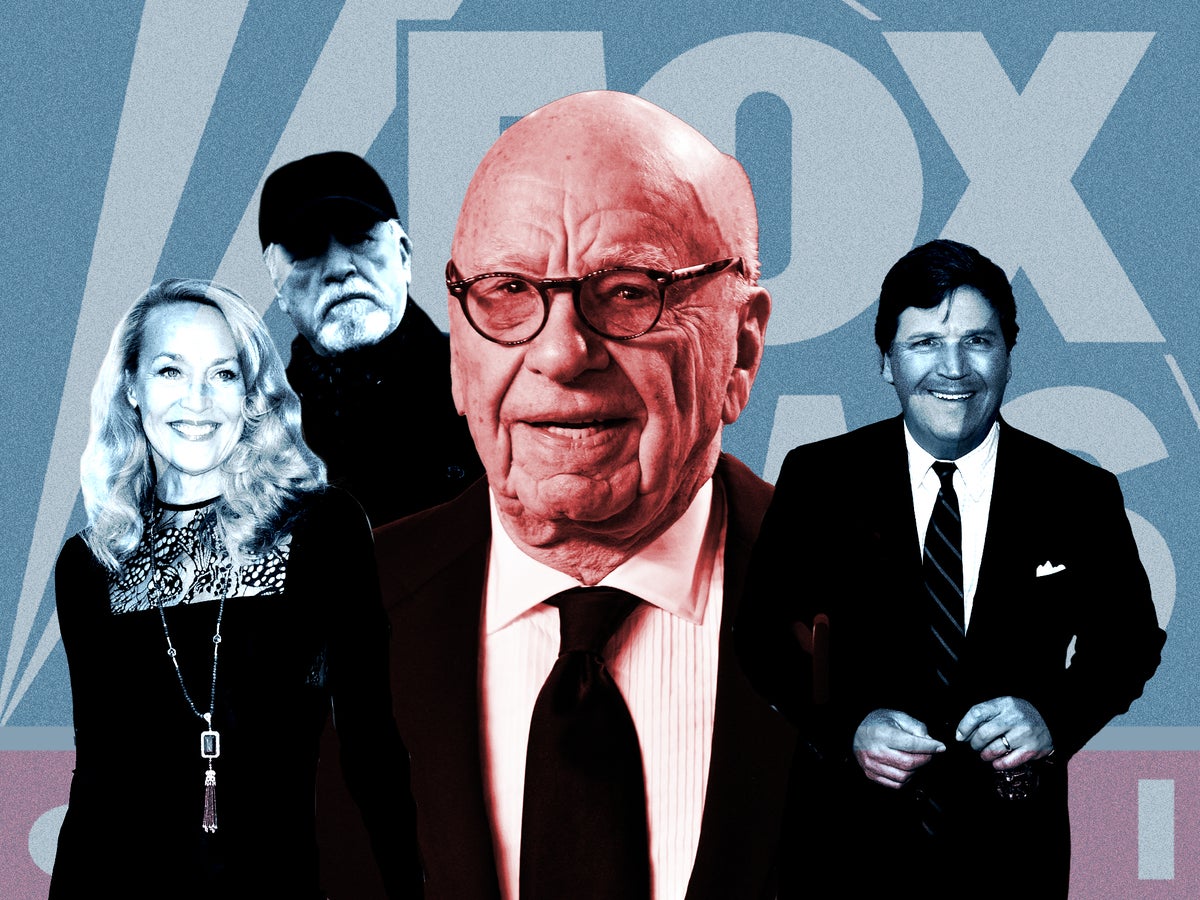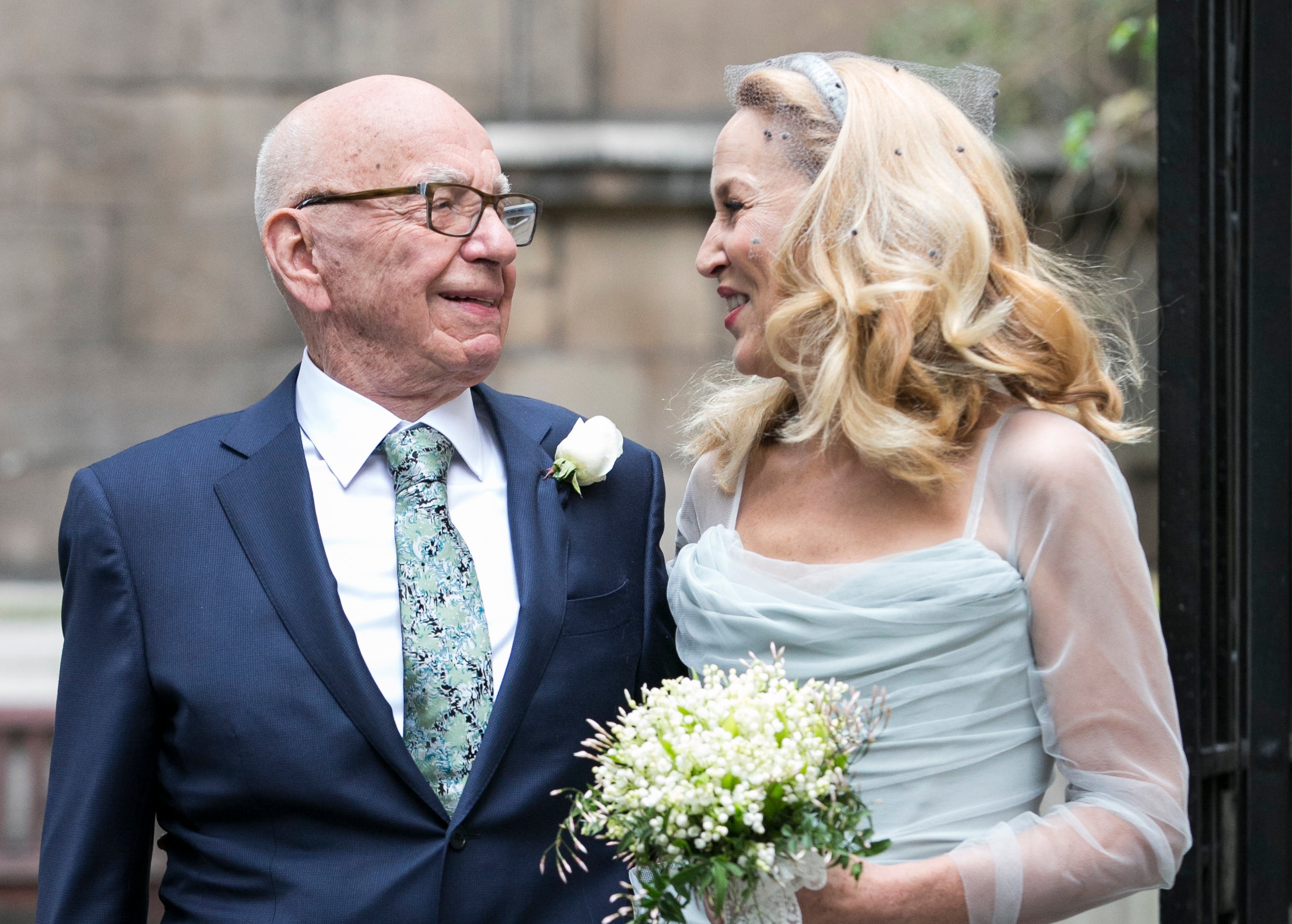
What does Rupert Murdoch believe in? From battling, and breaking, the print unions in Britain, to setting up the definitive mouthpiece for America’s alt-right, Murdoch has loomed over the worlds of politics and entertainment for decades. Everything from The Simpsons to MySpace owes its success, or failure, to the Australia-born media magnate. As do the likes of Donald Trump, Tony Blair, Barack Obama, Margaret Thatcher and Alex Salmond, all of whom have, at one time or another, received the backing of a Murdoch outlet. For Murdoch, elections are a spectator sport, much like horse races. And just like tipping the ponies, you want to pick the winner.
But it’s the first name on that list that is causing Murdoch his current headaches and precipitating valedictory messages around the world. The fiery right-wing polemicists at Fox News, who backed the Trump campaign even when all looked (and, in fact, was) lost, have, in the past few weeks, cost Murdoch the best part of a billion dollars and a large chunk of his credibility. “Farewell to Rupert Murdoch,” wrote the i newspaper, “and the era of the big, powerful media conglomerate.” Across the pond, meanwhile, the Los Angeles Times referred to a “crisis in Rupert Murdoch’s empire”. So why, after decades of surmounting controversies through a combination of bullying, lobbying and firefighting, is 2023 shaping up to be Murdoch’s annus horribilis?
For British followers of the Murdochs’ domain – which stretches from the shores of The Times to the sunlit uploads of, well, The Sun – the phone hacking scandal that emerged in 2011 is likely seen as the family’s crisis moment. It led to the closure of the News of the World, which was, at the time, one of the nation’s most prominent tabloid outlets. On the other side of the Atlantic, the 2016 allegations that Roger Ailes, then the supremo of ultra-powerful Fox News, sexually harassed senior news anchors at the company might be seen as the organisation’s inflection point. The cultural penetration of these events was underlined by the Oscar-nominated film, Bombshell, which starred Charlize Theron as former Fox talk-show host Megyn Kelly, one of Ailes’s accusers. (Hack Attack, a book about the phone tapping at News of the World, was optioned by George Clooney but later dropped.)
The Murdoch regime survived all of these incidents. Tony Blair was once offered some infamous advice on handling Murdoch by his Australian counterpart. “He’s a big bad bastard,” Paul Keating, who was Australia’s PM until 1996, is reported to have said, “and the only language he respects is strength.” But the past few months, which culminated in a record $787.5m settlement to voting system manufacturer Dominion, might be the bleakest plight the corporation has ever encountered. And paying out a figure roughly equivalent to the GDP of Dominica doesn’t exactly scream “strength”.
“The Dominion lawsuit is the worst crisis at the network I’ve seen,” wrote Gabriel Sherman, Roger Ailes’s biographer, in a much-shared Vanity Fair piece on the disintegrating dynasty. The settlement – which avoided a lengthy and humiliating trial – came after Fox News host Jeanine Pirro made the false claim that Dominion had been rigged against President Trump in the wake of his 2020 election defeat. This borderline delusional support for the former president had long been a sticking point within the Murdoch encampment: the younger son, James, had disavowed the company, and his elder brother, Lachlan, over the organisation’s support for the divisive Republican leader. Now, the cost of that support can be counted in nickels and dimes (15,750,000,000 nickels or 7,875,000,000 dimes, to be precise).
“For me one of the takeaways from the Dominion evidence was that Rupert remained engaged in the Fox business, especially in the wake of the 2020 election, and is still mentally sharp,” says Paddy Manning, who wrote The Successor, a look at the post-Rupert future of NewsCorp. The fact that Murdoch Snr is still in the thick of things has been illustrated, in the past week, by the brutal axing of Tucker Carlson, Fox News’s most watched, and most controversial, primetime host. Amid swirling rumours about misconduct allegations and a sense that Carlson (talked up as a future GOP candidate for the White House) was becoming too big for his boots, the Murdochs (including son Lachlan, the current CEO of the Fox Corporation) moved decisively.
Every plot line from ‘Succession’ seems to have their echoes in the Murdoch family soap opera. That said, some of the recent real-life dramas over at Fox News would probably have been rejected by the writing room as too implausible— Jonathan Ford
A former producer on the show, Abby Grossberg, alleges she was subject to bullying, sexism and antisemitism in the workplace, all of which provided the necessary ammunition for Carlson’s exit. “While I’m sure Tucker Carlson’s dismissal on Monday was done with Rupert’s blessing, it has the hallmarks of previous moves by Lachlan where allegations of improper sexual conduct or discrimination are involved,” came Manning’s analysis. Lachlan was seen as pivotal to the dismissal of Ailes, a loyal lieutenant of his father over several decades in the news business, which provided an obvious blueprint for handling the incipient cultural crisis.
All these shenanigans – including, at the more comical end, Rupert’s farcically short-lived engagement to Ann Lesley Smith, a 66-year-old evangelical former dental hygienist from Petaluma, California – have been rendered starkly through the mirror held up by Succession, HBO’s blockbuster TV series. The show follows the internecine Roy family disputes at a media conglomerate that doesn’t look wildly dissimilar to the Murdoch estate. “Every plot line from the show, from the sexism scandal on the cruise ships to the battles over the Roy family trust seem to have their echoes in the Murdoch family soap opera,” says Jonathan Ford, a former City Editor at the Financial Times who has made a podcast, A Long Time in Finance, looking at the economic parallels with Succession. “That said, some of the recent real-life dramas over at Fox News and its legal battles would probably have been rejected by the writing room as too implausible.”
The show, which follows three siblings – Kendall, Roman and Shiv – competing to follow their father, brash Scotsman Logan Roy, as leader of Waystar Royco, has drawn endless comparisons with its real life, antipodean, counterpart. “It’s not bulls*** to say it really isn’t the Murdochs,” the series’ creator, Jesse Amstrong, told The Guardian in 2018. And yet the dynamics fit rather too snugly for that line to be believed: James, the publicly virtuous sibling willing to throw the family name under the bus, seems an obvious parallel for Kendall, while Make America Great Again- spouting iconoclast Lachlan is rather Romanesque, and Elisabeth, the younger daughter who left the family business for a while, bears more than a passing resemblance to Shiv. There’s even an oft-forgotten sibling from a previous marriage, Prudence, though, unlike hopeless beanpole Connor, she’s not currently running for President.

Succession has thrust the question of the Murdoch inheritance into the public spotlight and hasn’t gone unnoticed at HQ. James has long been suspected as a source for the show’s writers’ room, while, according to the Vanity Fair profile, Rupert’s ex-wife, the supermodel Jerry Hall, was specifically forbidden, in the terms of their divorce settlement, from feeding plotline ideas to Armstrong’s merry band. Debates about the 92-year-old’s legacy have dominated family dinner discussions the world over; an unfamiliar position given their usual ability to bury their dirty laundry.
All the same, it won’t be the resolution of a prestige drama – now in its fourth and final season – that is vexing NewsCorp shareholders. The Fox Corporation share price plummeted after the Dominion settlement was announced, and the exit of Carlson this week has, perhaps, prevented a rebound. There’s also the threat, currently in the rear-view mirror, of further lawsuits from companies involved in voting technology, who believe they may have been defamed by the vulpine news network. All that, and the increasingly likely possibility that the 2024 US presidential election will be a rerun of the 2020 clash (bookmakers currently have a Biden v Trump rematch as their strongly favoured line-up).
Trump may have proved an existential threat to the Fox Corporation, but he’s also a lucrative opportunity. During Trump’s time in the Oval Office, Fox News became a de facto arm of the state. Not good for journalistic integrity, perhaps, but satisfying in terms of its influence. “Murdoch has always been a dab hand at playing the long game,” says Ian Silvera, editor of Future News. “With general elections planned in the UK, India and the US, 2024 presents a great opportunity for Murdoch and his team to find their stride again on the global stage.”
And, as we know, he loves picking winners. In the worldview of this arch-pragmatist, what matters is survival. There are not many corporations that could weather a settlement of this scale, but there aren’t many corporations like Fox. Outside the mollifying purview of fiction, the calamities of recent events are not building towards a season finale. The end credits will not be rolling. Surely as feast follows famine, mirabilis follows horribilis. Any man who can switch his backing from Margaret Thatcher to Tony Blair, who can fundraise for Hillary Clinton and flag wave for Donald Trump, is only interested in one thing. Making history, after all, is second only to surviving it.







